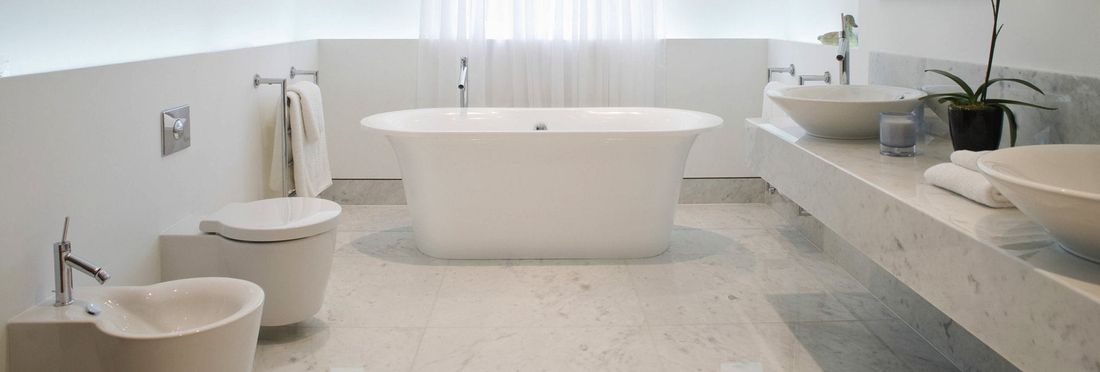Hard water is a prevalent issue that affects millions of households worldwide. While it may not pose immediate health risks, its long-term effects on plumbing systems can be significant and costly. In this post, we’ll delve into the impact of hard water on plumbing systems, explore the common signs of hard water, and discuss prevention and treatment methods to mitigate its effects.
Understanding Hard Water
Hard water is characterised by high concentrations of dissolved minerals, primarily calcium and magnesium ions. These minerals are naturally present in groundwater and surface water sources and can accumulate in plumbing systems over time. As water travels through soil and rock formations, it picks up minerals, resulting in hard water.
The Impact on Plumbing Systems
Scale Buildup
One of the most visible effects of hard water is scale buildup, which occurs when minerals precipitate out of the water and form a crusty residue on plumbing fixtures, pipes, and appliances. Scale can restrict water flow, decrease water pressure, and eventually lead to clogs and blockages in pipes and faucets.
Reduced Efficiency
Hard water can impair the efficiency and performance of plumbing appliances such as water heaters, dishwashers, and washing machines. Scale accumulation on heating elements and internal components can reduce heat transfer efficiency, increase energy consumption, and shorten the lifespan of appliances.
Corrosion
While hard water itself is not corrosive, the presence of dissolved minerals can exacerbate corrosion in metal pipes and fixtures. Over time, corrosion can weaken pipes, leading to leaks, pinhole damage, and plumbing failures. Additionally, scale buildup can provide a breeding ground for bacteria and contribute to the deterioration of plumbing materials.
Soap Scum
Hard water reacts with soap to form insoluble soap scum, which can coat surfaces, bathtubs, and shower doors. Soap scum is difficult to remove and can leave a filmy residue on skin and hair, affecting personal hygiene and cleanliness.
Signs of Hard Water
Scale Deposits
Visible white or yellowish deposits on faucets, showerheads, and other plumbing fixtures are indicative of hard water.
Low Water Pressure
Scale buildup in pipes can restrict water flow, leading to decreased water pressure throughout the plumbing system.
Soap Residue
Difficulty lathering soap and a sticky feeling on skin and hair after bathing are common signs of hard water.
Appliance Damage
Premature failure or reduced efficiency of water-using appliances such as water heaters, dishwashers, and washing machines can be attributed to hard water.
Stiff Laundry
Hard water can cause laundry detergent to become less effective, resulting in stiff, scratchy clothes and dull colours.
Prevention and Treatment
Water Softeners
Water softeners are the most effective solution for treating hard water. These devices use ion exchange technology to remove calcium and magnesium ions from water, replacing them with sodium or potassium ions. Water softeners prevent scale buildup, prolong the lifespan of plumbing systems and appliances, and improve water quality for household use.
Descalers
Electronic water descalers use electromagnetic waves to alter the structure of minerals in hard water, preventing them from forming scale deposits. While not as effective as water softeners, descalers offer a chemical-free alternative for treating hard water and reducing scale buildup in plumbing systems.
Reverse Osmosis Systems
Reverse osmosis systems can remove dissolved minerals and other impurities from water by forcing it through a semipermeable membrane. While primarily used for drinking water purification, reverse osmosis systems can also help reduce the hardness of water throughout the home.
Citric Acid Treatments
Citric acid-based cleaners and treatments can dissolve existing scale deposits and prevent further buildup in plumbing fixtures and appliances. Periodic cleaning with citric acid solutions can help maintain water flow and prolong the lifespan of plumbing systems.
Regular Maintenance
Regular maintenance of plumbing systems, including flushing pipes, cleaning fixtures, and inspecting appliances, can help prevent and mitigate the effects of hard water. Installing sediment filters and strainers can also reduce the impact of mineral particles on plumbing components.
Conclusion
Hard water can wreak havoc on plumbing systems, causing scale buildup, reduced efficiency, and premature wear and tear on fixtures and appliances. By understanding the impact of hard water and implementing preventive measures such as water softeners, descalers, and regular maintenance, homeowners can safeguard their plumbing systems and enjoy the benefits of clean, efficient water for years to come. Whether through professional treatment or DIY solutions, addressing hard water issues is essential for maintaining a healthy and functional home environment.
If you have any questions or are in need of further advice, just call a member of the EVO Plumbing and Heating team who will be happy to help.
Freephone 0800 920 2030
Alternatively you can enquire online and we will get back to you shortly.

